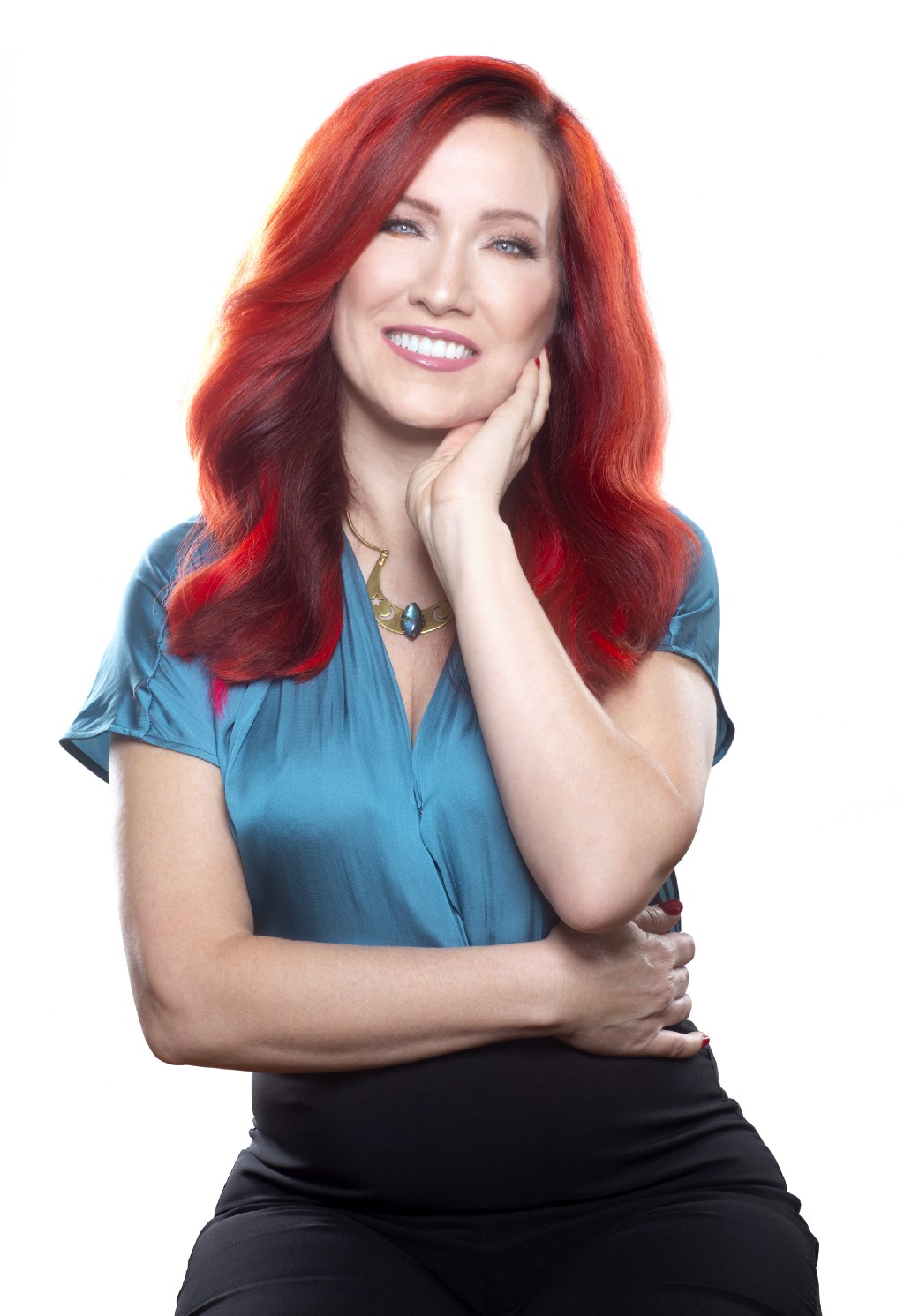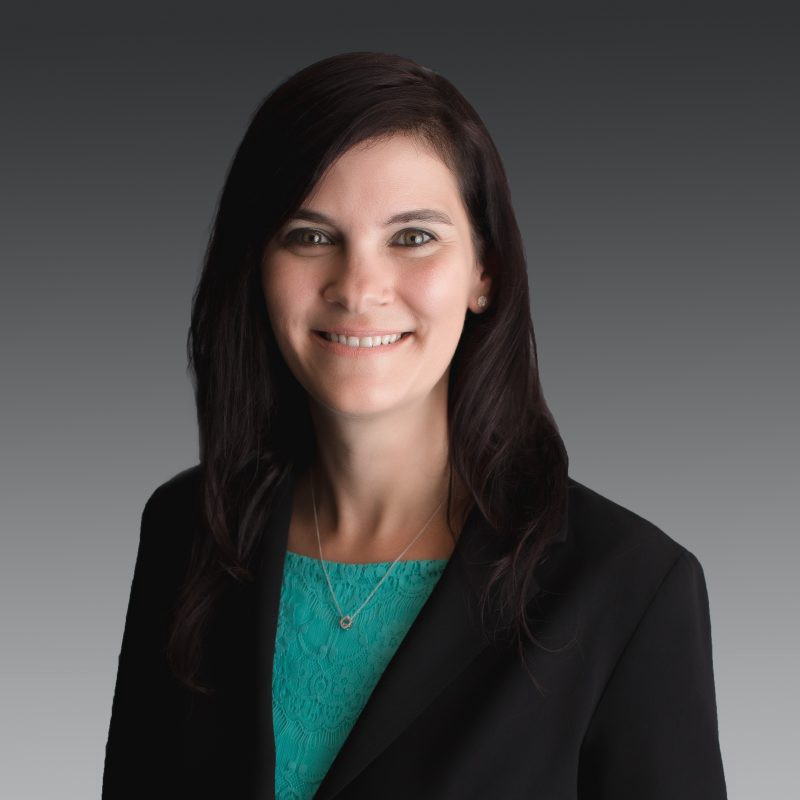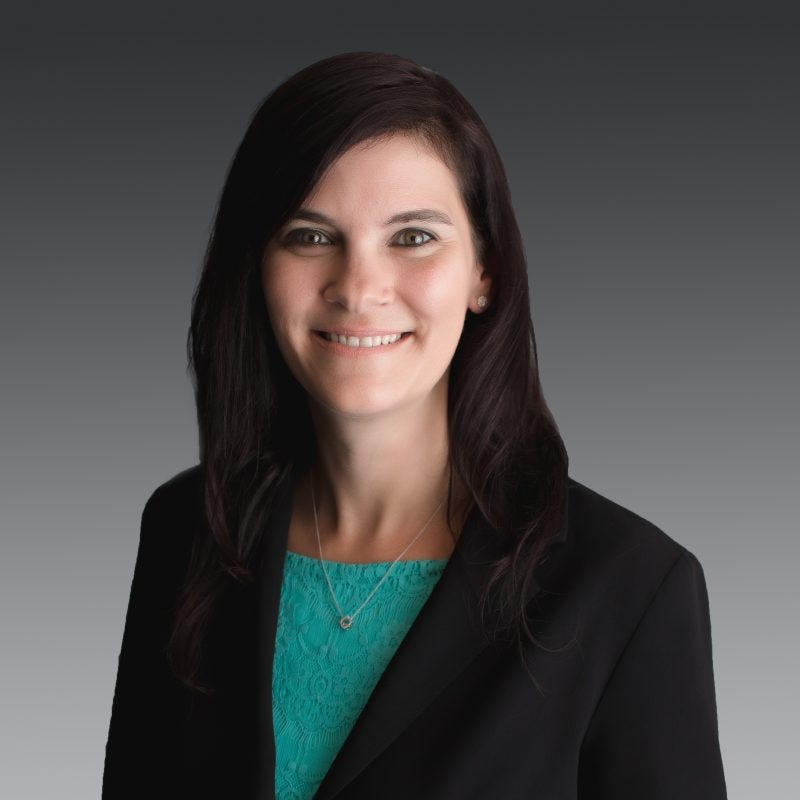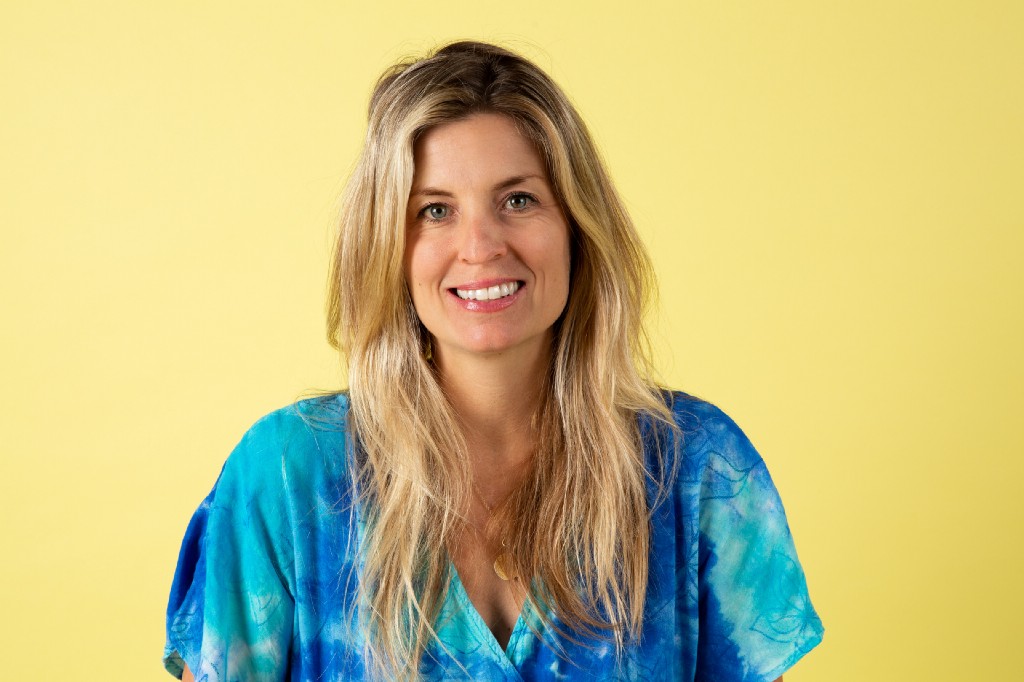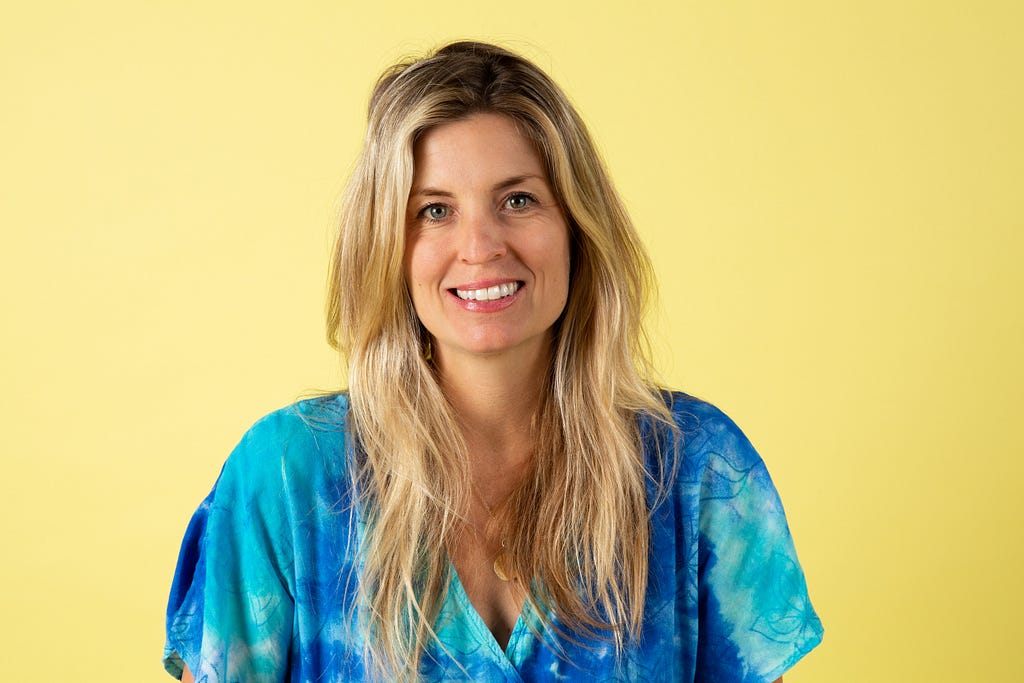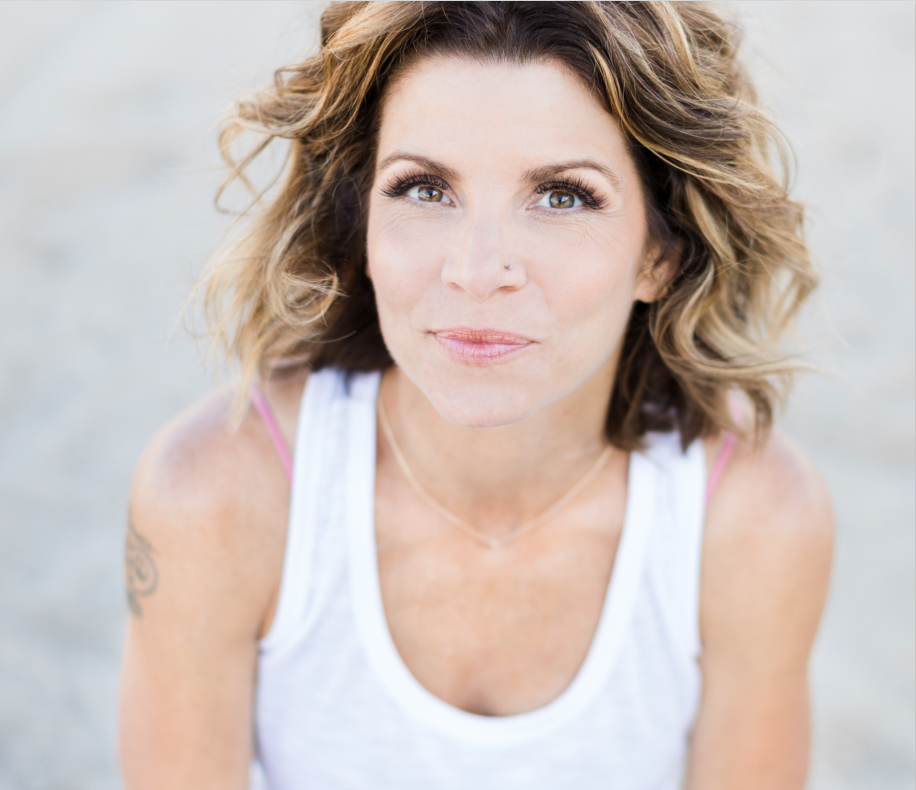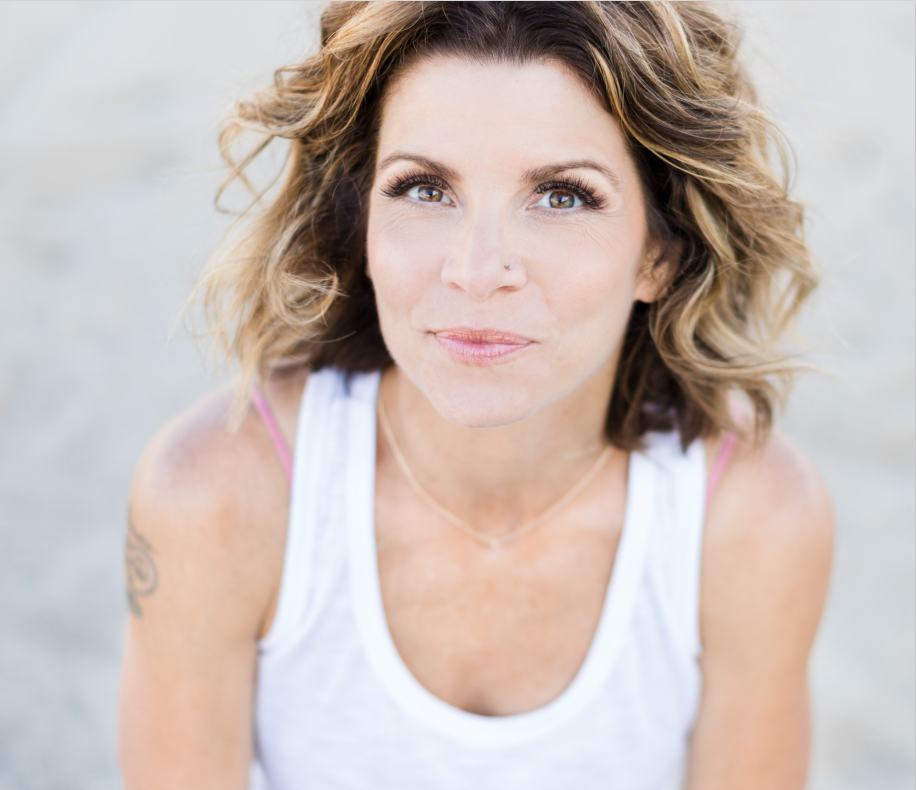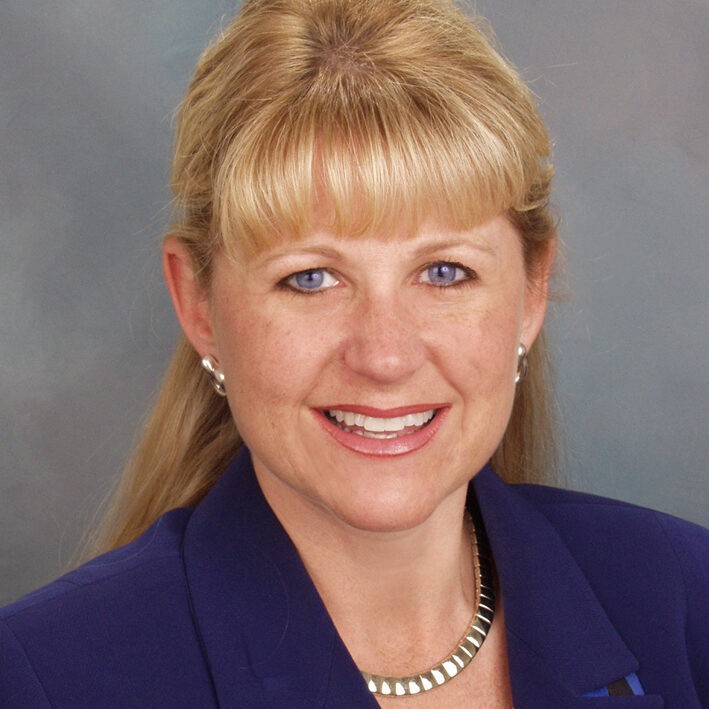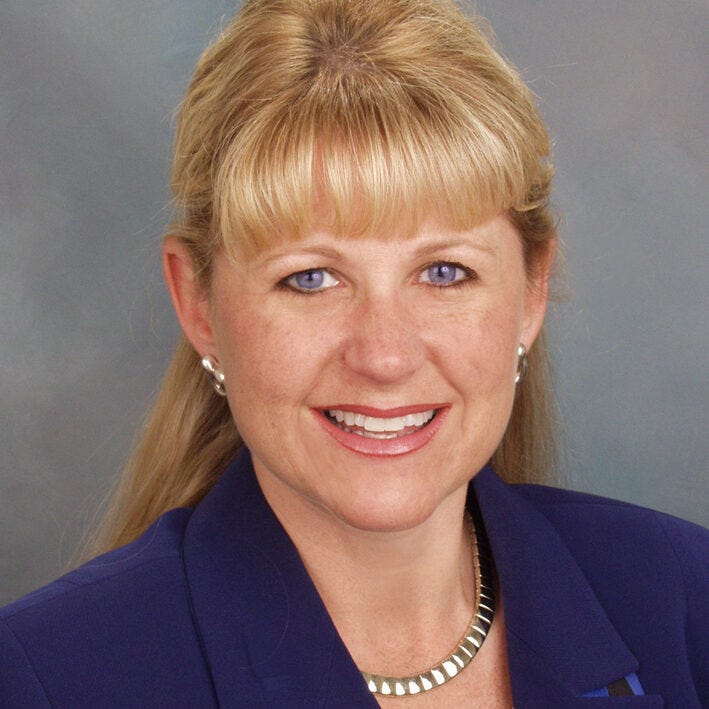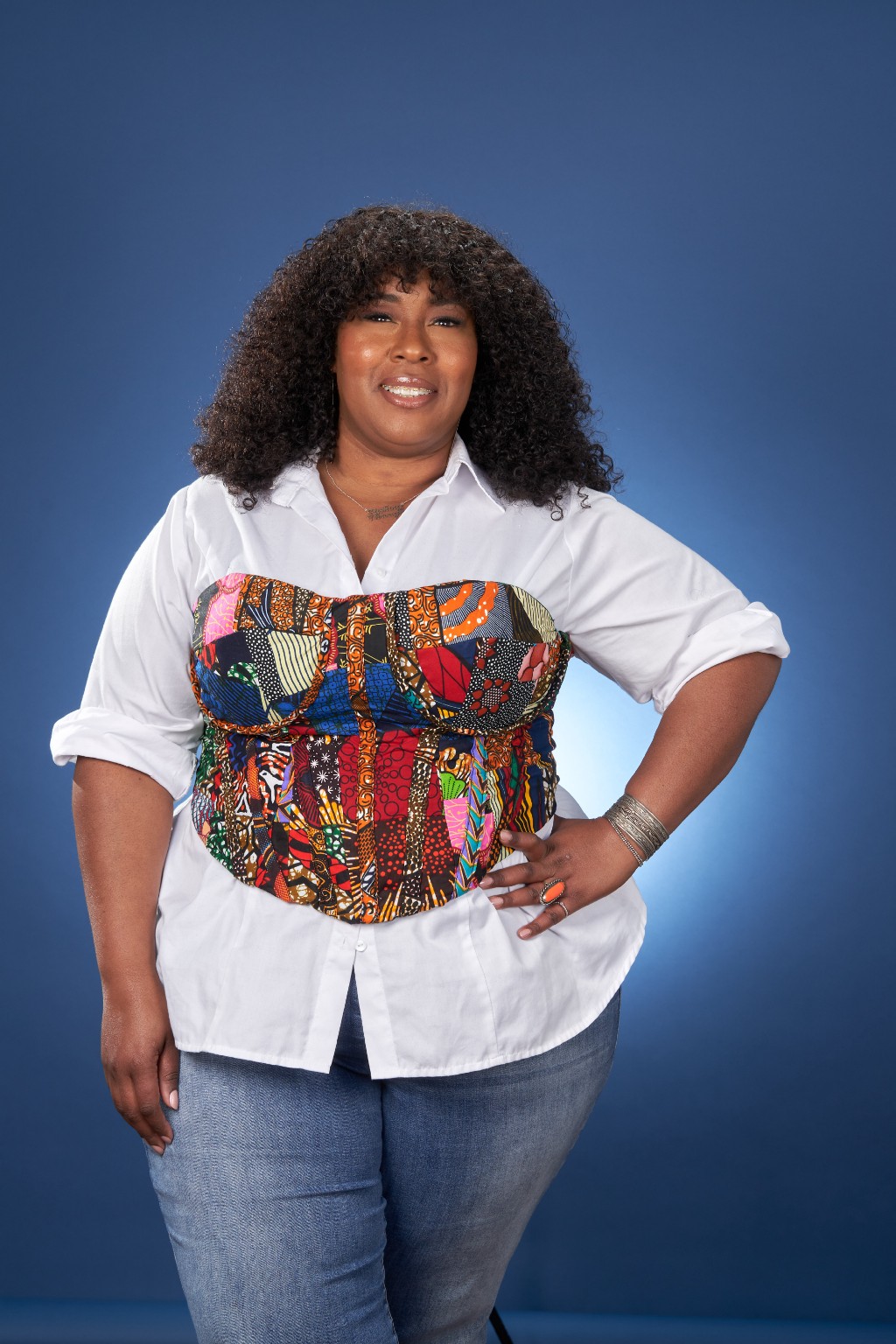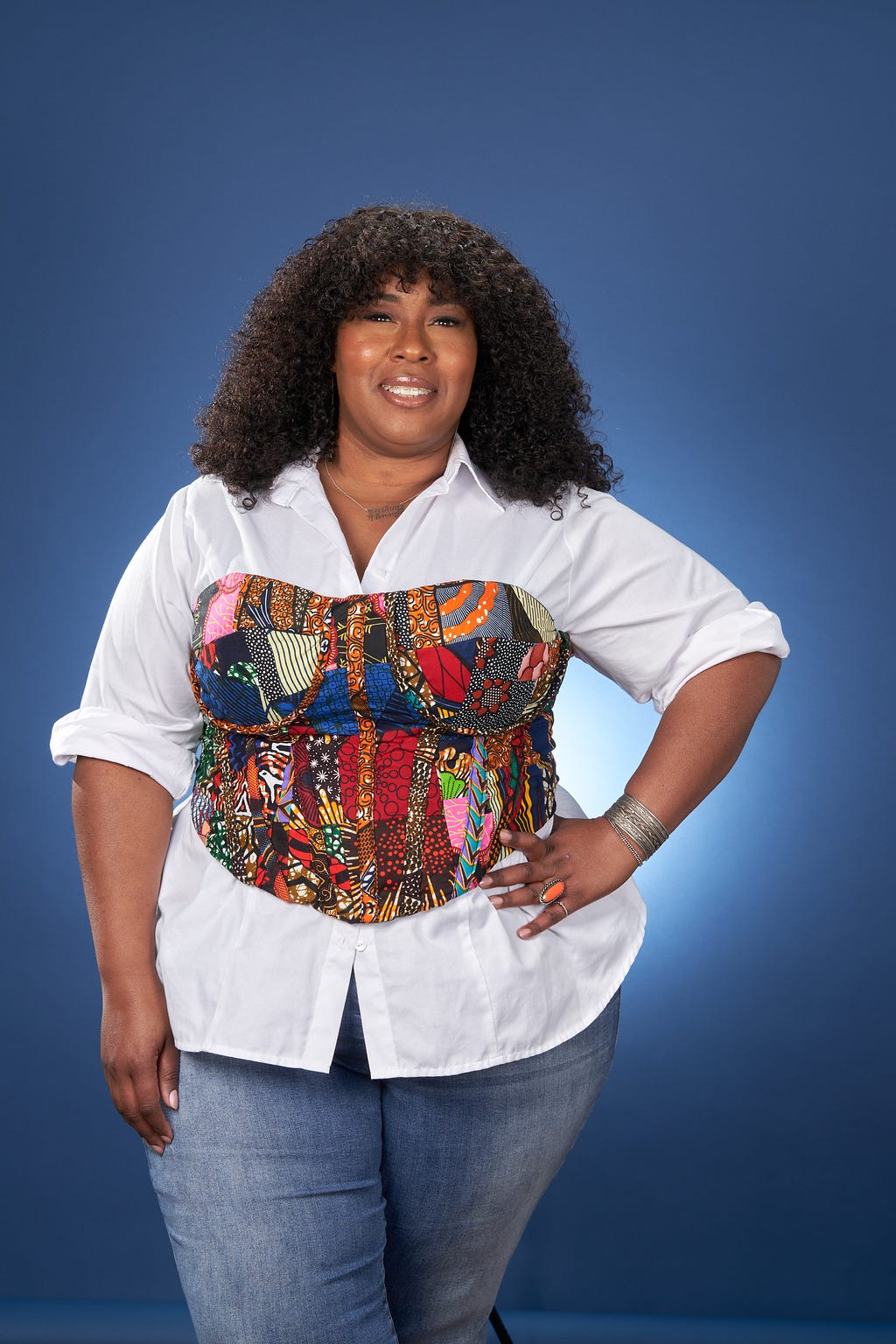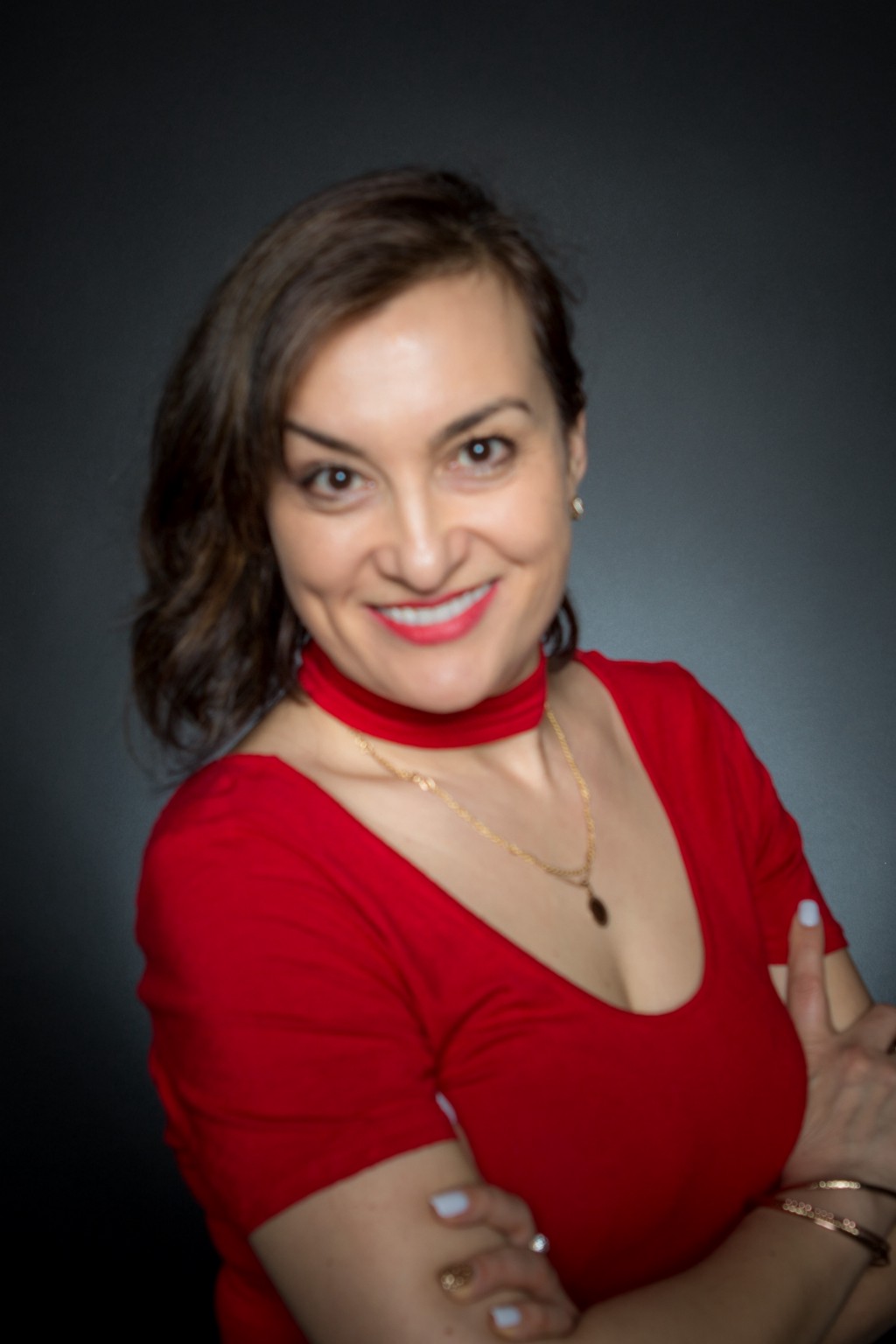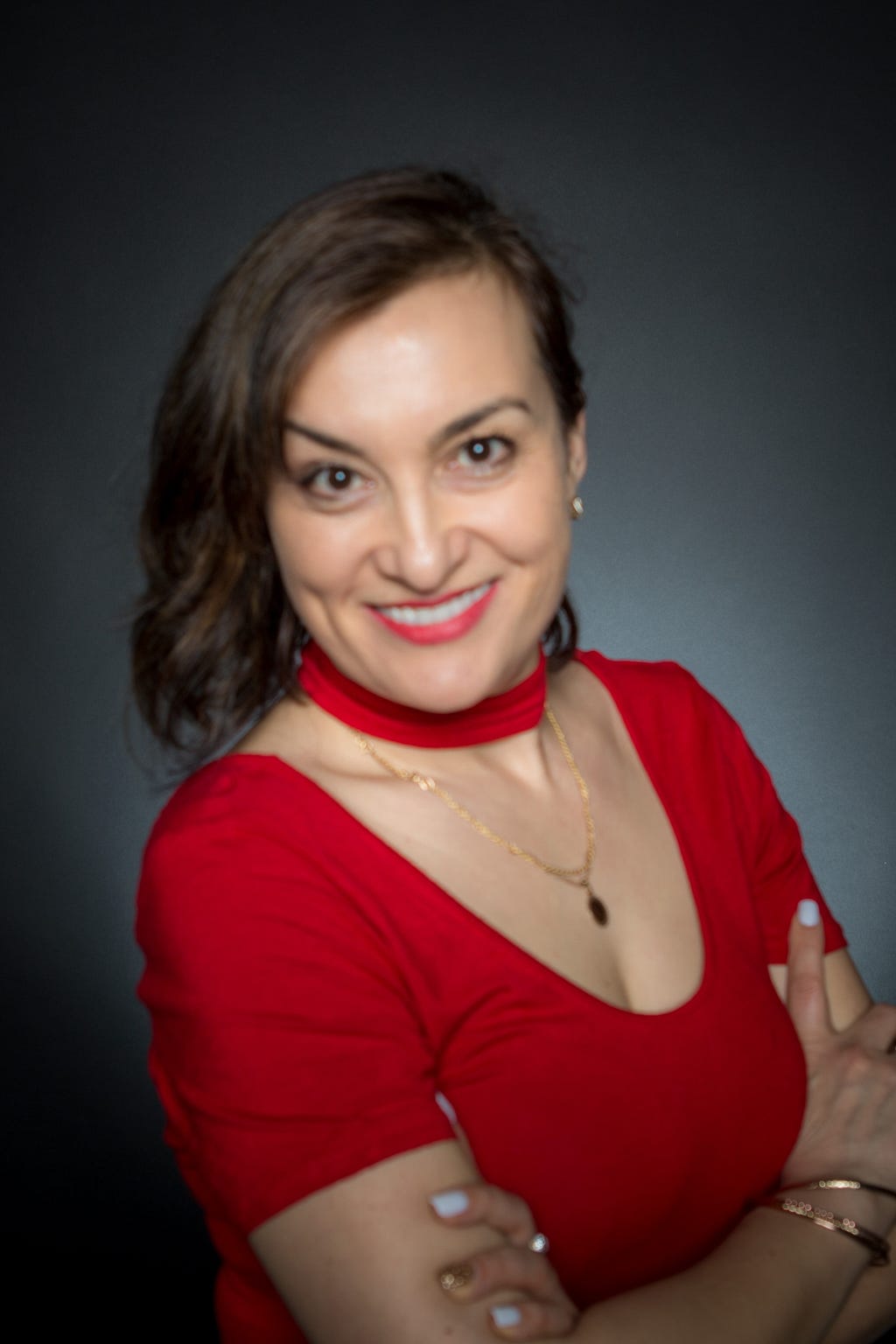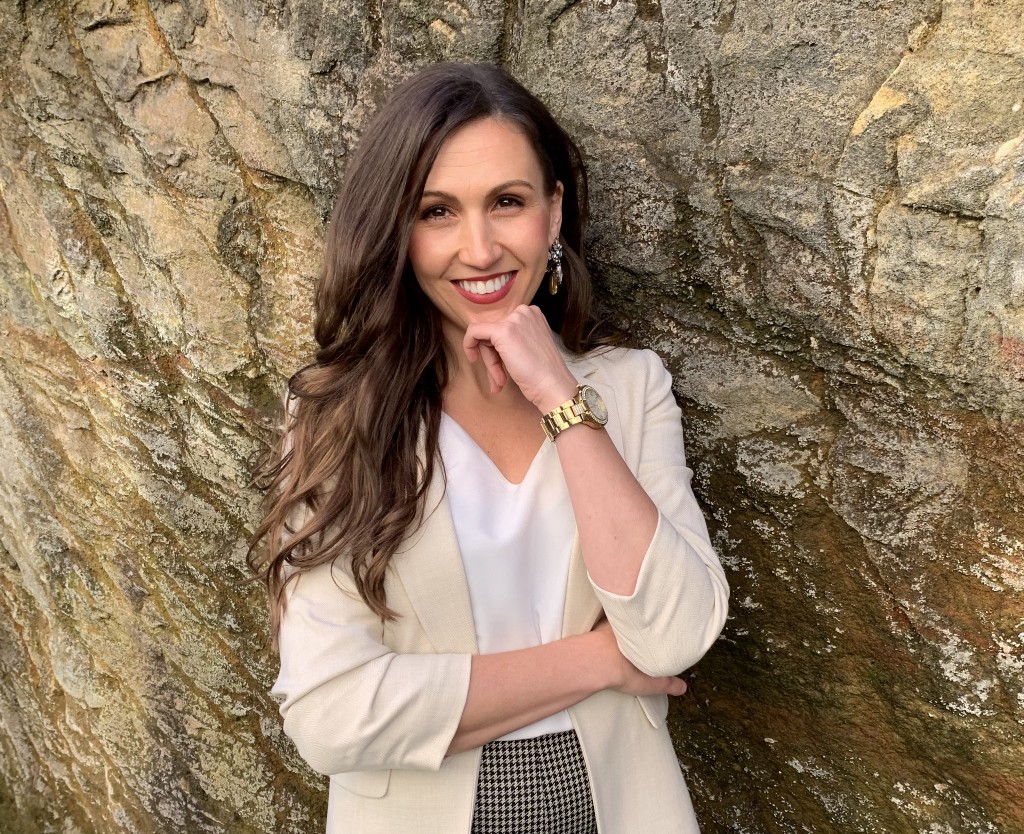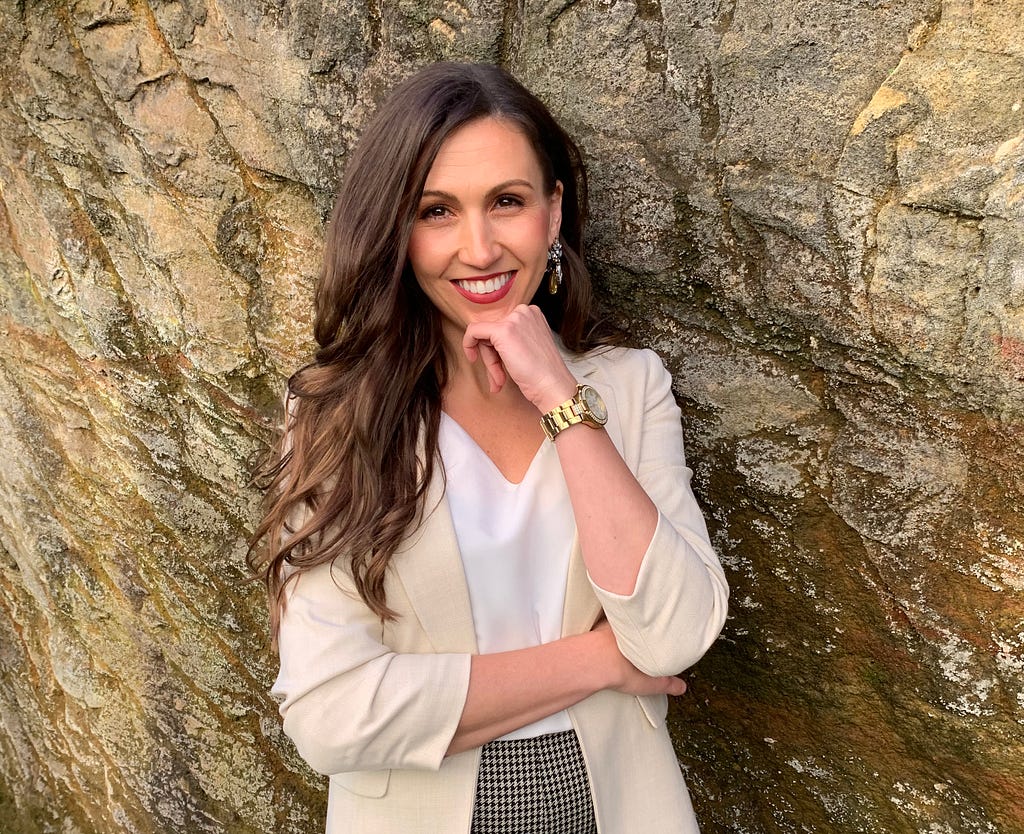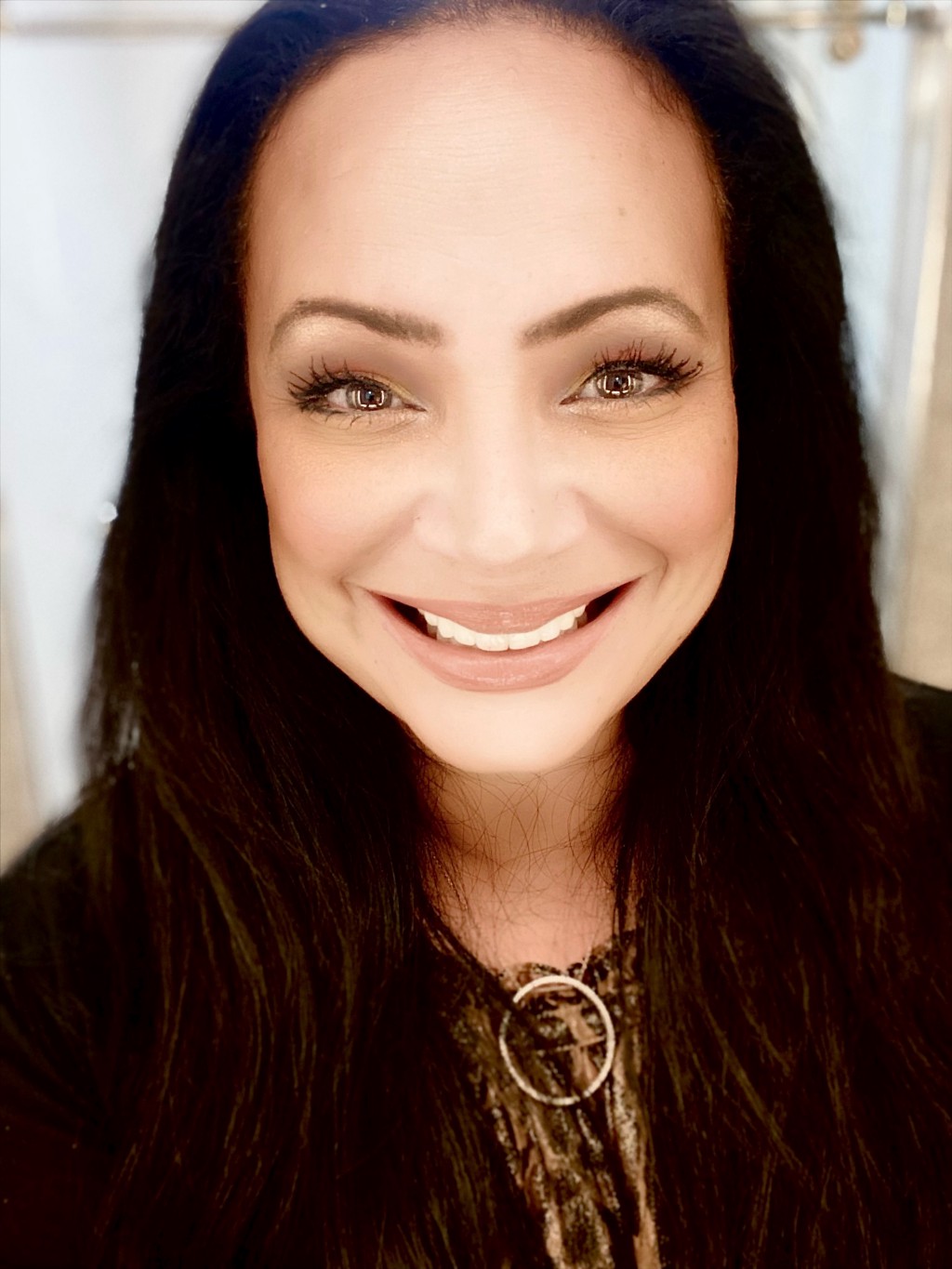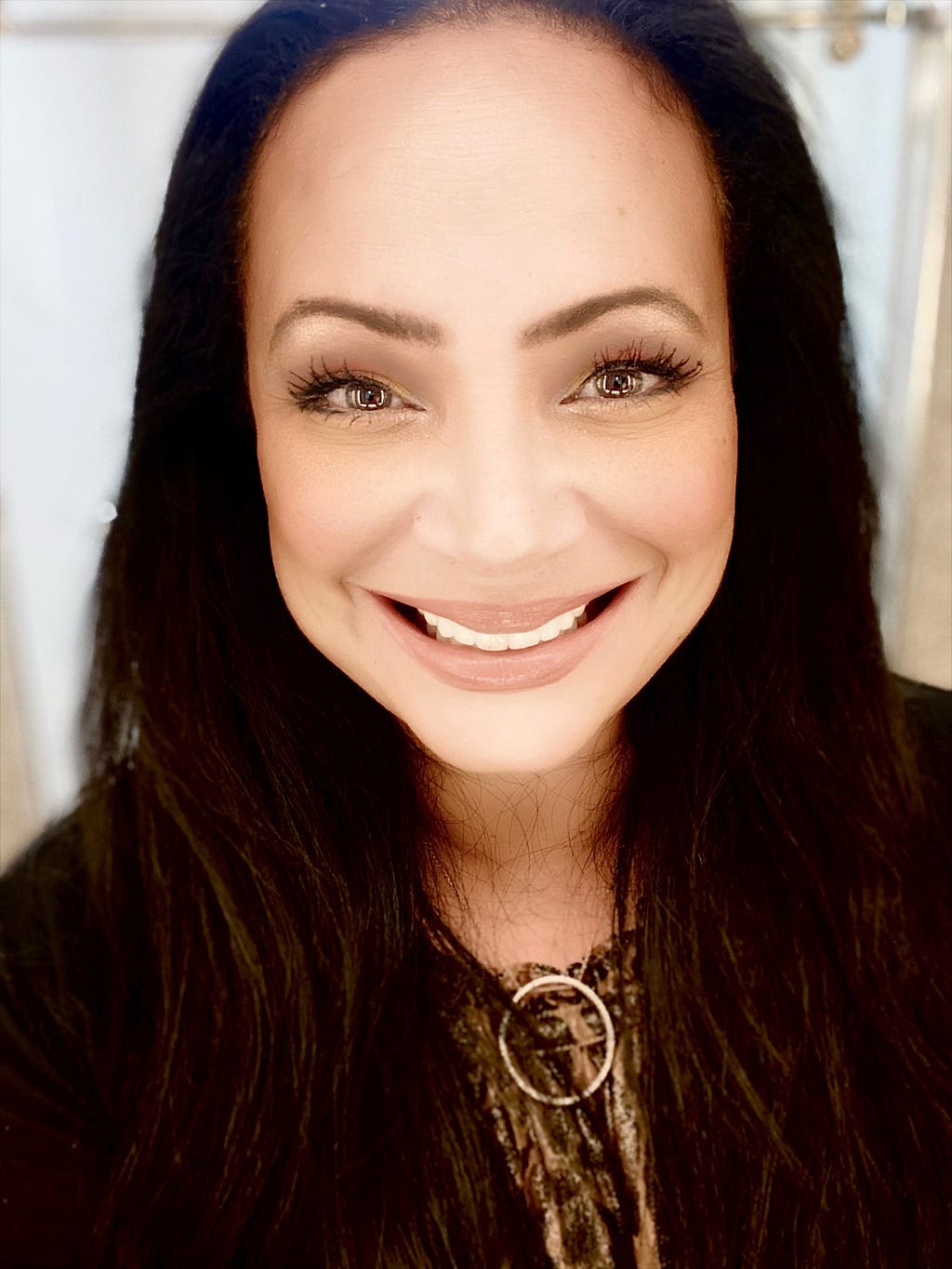An Interview With Candice Georgiadis
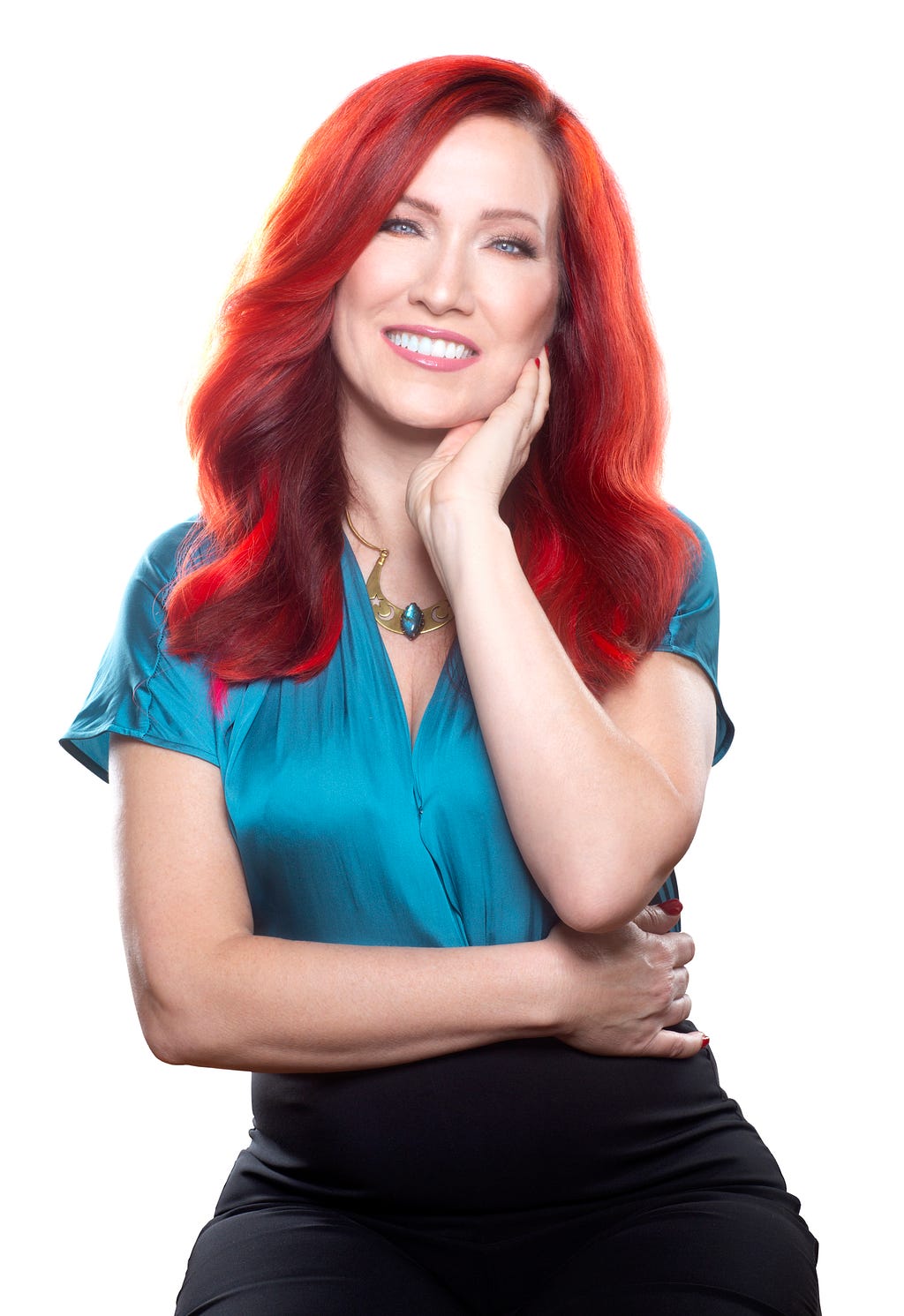
Notice how different you feel now in comparison to when you started. In addition, you may notice that not only has your body calmed down, but your emotions may feel more peaceful, and your thoughts may have become more positive.
As a part of my series about “How To Develop Mindfulness And Serenity During Stressful Or Uncertain Times”, I had the pleasure of interviewing Kate Loree (LMFT).
Kate Loree, LMFT, is a sex-positive licensed marriage and family therapist with a specialty in non-monogamous, kink, LGBTQ, and sex worker communities and the author of Open Deeply: A Guide to Building Conscious, Compassionate Open Relationships.
In addition to her master’s in marriage and family therapy, she also has an MBA and is a registered art therapist (ATR). She is an EDSE certified sex educator and an EMDR certified therapist with additional training in the Trauma Resiliency Model (TRM) for the treatment of trauma.
Thank you so much for doing this with us! Our readers would love to “get to know you” a bit better. Can you share with us the backstory about what brought you to your specific career path?
I began my career in 2003 as an art therapist and trauma therapist, but in my private life, I was, and still am, non-monogamous. When I was ready to leave the hospital clinic and open a private practice in 2011, word got out in the Los Angeles non-monogamous community. Immediately, my phone began to ring with potential clients. Non-monogamous people tend to feel much more comfortable with a sex positive psychotherapist who understands this way of life; and it’s not rare for clients to report experiencing judgement from former psychotherapists who are more conservative. So, the community was happy to hear that a sex positive therapist had gone into private practice. I had clients who identified as non-monogamous before I had found an office space, so I had to scramble to find an office quickly.
Can you share the most interesting story that happened to you since you started your career?
Oh, if the walls of my office could talk! Due to confidentiality, I have to choose an off the clock memory. I think one of my proudest moments was speaking on stage with Janet Hardy, co-author of The Ethical Slut and non-monogamous, iconic forerunner. Her book, published in 1997, paved the way for sex positive educators and psychotherapists like me, with its mission to break down sexual shame in our culture. And now the torch is passed to me, and others like me. Hopefully, my book, Open Deeply: A Guide to Building Conscious, Compassionate Open Relationships, will have similar lasting impact. My mission is to work towards a more conscious, compassionate world. I’m committed to shifting our culture’s zeitgeist from seeing sex as shameful, wrong and needing forceful suppression to seeing sex as healthy, beautiful and worthy of open celebration.
What advice would you give to other leaders about how to create a fantastic work culture?
Although I work alone as a psychotherapist, I’m connected to a larger community of sex positive educators and psychotherapists. We are often silenced on social media because our culture takes issue with sex education. It’s our support of each other that allows us to succeed regardless. So, my advice to other leaders is to befriend benevolent leaders in your field, set an intention to lift each other up, and then follow through. The old school method of crushing the competition is part of dominator culture. There is a better and more loving way to succeed.
Is there a particular book that made a significant impact on you? Can you share a story or explain why it resonated with you so much?
Deepak Chopra’s, The Book of Secrets was a godsend when I was first diagnosed with cancer but didn’t know the stage or whether I would survive. Now, I am healthy and fully recovered. But at the time, that book helped me understand that we are all bigger than our bodies. We are part of a grander whole and if we can cultivate a deeper sense of gratitude and love for Mother Earth while being mindful, we can significantly up our chances of getting through the hardest of times.
Ok, thank you for all that. Now let’s move to the main focus of our interview. From your experience or research, how would you define and describe the state of being mindful?
Being mindful is being aware and present in the current moment. It’s being here now. A mindfulness exercise might be to step outside on a beautiful day. Notice your breath. Notice the breeze and sunlight on your skin. See how the breeze gently moves the leaves on the trees and how the sun glistens through the leaves creating a sort of performance art. And then notice what part of your body knows about this beauty you are witnessing. Maybe it’s your heart. And as you focus on your heart, you may notice a warmth expanding within you. As you notice this warmth expanding from your heart outward, you may notice a smile on your face and a sense of peace from within. This is mindfulness. It’s the practice of noticing everything from within and without in the present moment.
I would describe it as being present in the here and now. This state includes being aware of the sights and sounds around you
This might be intuitive to you, but it will be instructive to spell this out. Can you share with our readers a few of the physical, mental, and emotional benefits of becoming mindful?
In our culture, we tend to be goal oriented, driven, and in our heads. This state tends to lead to a mind that races, ruminates and is critical to the self and others. Concurrently, we often discount the wisdom of our body sensations and our emotions. Mindfulness invites us to reconnect to our full internal compass; our thoughts, body sensations and emotions, working in tandem from a grounded, centered place. Once reconnected to our full internal compass in the here and now, we are able to make better choices for ourselves. Our “yes” is much more likely to be a true yes. We are more likely to notice quickly when someone or something isn’t right for us. This practice is key within non-monogamous relationships so that you don’t agree to an activity that actually isn’t right for you or you are not ready for.
As we continue to practice mindfulness, our thoughts, feelings and sensations become a better team. Overtime, we can handle stress much more easily and regulate our system more effectively. This is crucial when having a difficult conversation within a non-monogamous relationship. Non-monogamy often pokes at any unresolved attachment injuries, especially during disagreements. Therefore, a practice of mindfulness is a game changer.
Ok. Here is the main question of our discussion. The past 5 years have been filled with upheaval and political uncertainty. Many people have become anxious from the dramatic jolts of the news cycle. From your experience or research, what are five steps that each of us can take to develop mindfulness during such uncertain times? Can you please share a story or example for each.
For the purpose of stress relief, I’d suggest coupling mindfulness with resourcing. A resource can be anything that gives you a good feeling, like your pet, a loved one, or an uplifting belief.
First, find the resource that you intend to focus on. For the purpose of this example, let’s imagine it’s your favorite beach vacation spot.
Second, imagine this gorgeous beach in as much detail as you can. Imagine the beautiful blue of the ocean, the sound of the seagulls, the feel of the sand in your toes, and the taste of your drink with the little umbrella off to one side. Sense into all of this as much as you can and please take your time. Allow it to come to life in your mind’s eye.
Third, notice any positive changes in your body. Perhaps some tension has melted away. Your breathing might be slower and deeper, and you might sense a warmth in your core.
Fourth, notice what happens when you focus on these positive changes in your body. As you focus, you may notice some of the positive sensations expanding while tension or pain continues to soften.
Fifth, notice how different you feel now in comparison to when you started. In addition, you may notice that not only has your body calmed down, but your emotions may feel more peaceful, and your thoughts may have become more positive.
This is a somatic psychotherapy exercise used by trauma therapists to help trauma survivors. But it’s a powerful exercise for anyone regardless of your life experiences. This technique can also be used in relationships, regardless of whether you are monogamous or non-monogamous, to calm yourself or your partner, if a heated conversation gets to be too much.
From your experience or research, what are five steps that each of us can take to effectively offer support to those around us who are feeling anxious? Can you explain?
First, learn what your loved ones’ positive resources are. It may be a loved one who has nurtured them, protected them or imparted wisdom to them in the past. It may be a pet or loved one. It might be someone from tv or movies. For instance, Mr. Rodgers is a fav for many. If they become emotionally dysregulated, you can help them ground by discussing these resources with them. Encourage them to create a folder on their phone of quotes and pictures that are calming to them. Or they may have a favorite Instagram page of animals or jokes that help them feel better.
Second, learn what sort of touch, if any, calms them. Sometimes holding someone’s hand, petting their head, or rubbing their back can be more powerful than anything that you might say.
Third, focus on slow, deep breathing, slower on the exhale. Our inhale is associated with action. What do you do when a car almost hits your car? A quick breath in, correct? In contrast, the exhale is associated with calm. Furthermore, deep breathing is associated with the parasympathetic nervous system, a place of calm. So, when we purposefully deep breath, it can often trick the body into thinking that all is well.
Fourth, attempt to get them to notice the here and now. They may be worried about what might happen in the future, and yet, in the present moment, they may be completely safe. According to researchers at Penn State University, only about 8% of the things we worry about actually happen.
Fifth, help them focus on what they are grateful for. Many of us are wired for anxiety. It’s what kept our ancestors alive, right? However, now that this focus is grooved into how we operate, it no longer serves us. And yet, anxious thinking is often our default. Therefore, we have to consciously build a practice of gratitude to override it. Luckily, what fires together wires together in the brain. However, a gratitude practice will feel like work at first. But eventually, it will become the new default behavior as time progresses. And finally, it will become a new identity. Anyone can transform into a grateful person. And that is one of the great secrets to happiness.
In relationships, a gratitude practice that extends to your partner is a key to loving well and having a less anxious relationship. If we are wired for anxiety, this translates to noticing everything that is wrong with our partner. This pattern, of course, simply heightens our anxiety and discontent. A practice of gratitude for our partner is powerful. It a key ingredient is any healthy relationship. It can heighten love, build intimacy and strengthen connection.
These five steps are beautiful ways to offer support to those who you love and care for. And if you use these tools, you may notice that you feel more empowered and have a greater sense of agency during hard times. However, if none of these strategies are helping your loved one, don’t hesitate to bring in a mental health professional for support. Sometimes you can’t do it alone and a psychotherapist or psychiatrist is needed. There is no shame in that. And often, it’s part of self-love to know when you or your loved one needs additional help.
What are the best resources you would suggest for someone to learn how to be more mindful and serene in their everyday life?
Here are a few suggestions:
- The Calm app
- On Purpose podcast with Jay Shetty
- The Tara Brach podcast
- Holotropic Breathwork by Stanislav Grof, and
- The Untethered Soul by Michael Singer
Can you please give us your favorite “Life Lesson Quote”? Do you have a story about how that was relevant in your life?
“Walking, I am listening to a deeper way. Suddenly all my ancestors are behind me. Be still, they say. Watch and listen. You are the result of the love of thousands.”
Linda Hogan
Native American Writer
In my personal life, I have seen visions during holotropic and pranayama breathwork meditations. From these experiences, I believe that we are connected to a larger whole that has both a physical and a spiritual plane. As we connect to both planes concurrently using mindfulness, our focus on social justice and spiritual love combine. And from this place, we amplify our ability to be present, to “be love”, and in turn, reach our human potential.
You are a person of great influence. If you could start a movement that would bring the most amount of good to the most amount of people, what would that be? You never know what your idea can trigger. 🙂
I would encourage more people to try holotropic or pranayama meditations, practice mindfulness, or if you are bold, even experience a plant medicine journey led by a trusted shaman in a beautiful setting. I’ve heard so many stories of emotional break throughs and rapid growth occurring via these practices and experiences. And I have had my own breathtaking, life changing experiences, as well.
What is the best way our readers can follow you online?
Website http://kateloree.com
Instagram http://instagram.com/opendeeplywithkateloree
Tiktok https://www.tiktok.com/@opendeeplywithkateloree
Facebook https://www.facebook.com/kateloreelmft
Twitter http://twitter.com/kateloreelmft
Instagram http://instagram.com/opendeeplywithkateloree
YouTube https://youtube.com/channel/UCSTFAqGYKW3sIUa0tKivbqQ
Thank you for these fantastic insights. We wish you only continued success in your great work!
Kate Loree On How To Develop Mindfulness During Stressful Or Uncertain Times was originally published in Authority Magazine on Medium, where people are continuing the conversation by highlighting and responding to this story.


